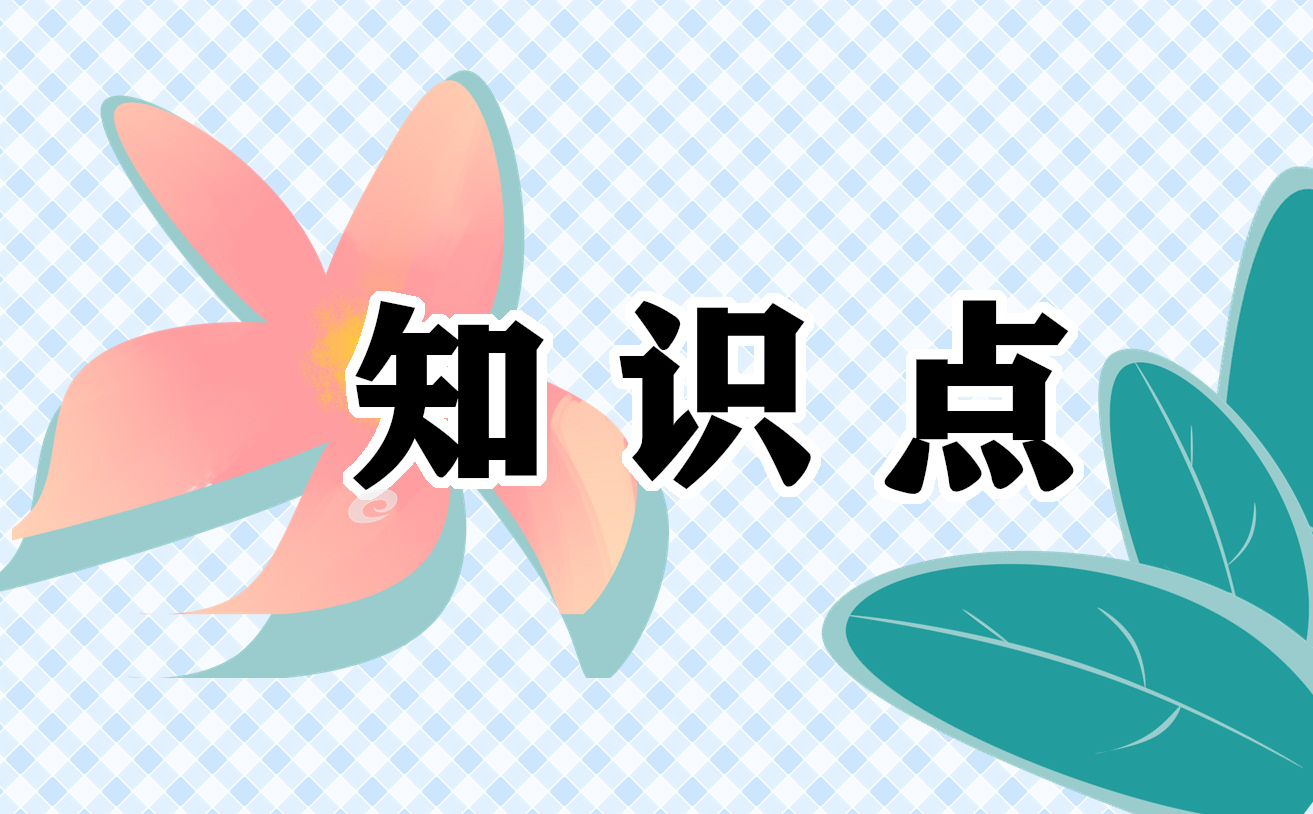英语冠词语法的知识点
定冠词表示名词为特定者,与该名词表示的其他人或事物区别开,可根据实际情况翻译成“这”“那”“这些”“那些”,或不翻译,接下来小编给大家分享关于英语冠词语法的知识,希望对大家有所帮助!

英语冠词语法的知识1
a和an的区别
不定冠词有a和an两种形式,a用于辅音(不是辅音字母)开头的词前,an用于元音(不是元音字母)开头的词前。
例如:a boy,a university;an hour,an apple,an umbrella
不定冠词的用法
1.泛指某一类人、事或物,这是不定冠词a/an的基本用法。
A knife is a tool for cutting with.
Mr. Smith is an engineer.
2.泛指某人或某物,但不具体说明何人或何物。
A Mr. Li is waiting for you.
一位李先生在等你。
3.表示数量,有“一”的意思,但数的概念没有one强烈。
There is a book on the desk.
书桌上有一本书。
4.表示“每一”,相当于every.
I go to school five days a week.我一周上五天课。
5.用在序数词前,表示“又一”,“再一”。
I have three books. I want to buy a fourth one.
我已经有三本书,我想买第四本。
6.用在某些固定词组中
用与不用冠词的差异
in hospital住院/in the hospital在医院里
go to sea出海/go to the sea去海边
on earth究竟/on the earth在地球上,在世上
in front of在……(外部的)前面/in the front of在……(内部的)前面
take place发生/take the place(of)代替
at table进餐/at the table在桌子旁
by sea乘船/by the sea在海边
in future从今以后,将来/in the future未来
go to school(church…)上学(做礼拜…)/go to the school (church…)到学校(教堂…)去
on horseback骑着马/on the horseback在马背上
two of us我们当中的两人/the two of us我们两人(共计两人)
out of question毫无疑问/out of the question不可能的,办不到的
next year明年/the next year 第二年
a teacher and writer一位教师兼作家(一个人)/a teacher and a writer一位教师和一位作家(两个人)
英语冠词语法的知识2
定冠词的用法
1.特指某(些)人或某(些)物,这是定冠词的基本用法。
The girl under the tree is my sister.
树下的女孩是我妹妹。
2.指谈话双方都知道的人或事物。
Open the window,please.请打开窗户。
3.指上文已经提到的人或事物。
I have a car. The car is red.
我有一辆小汽车,它是红色的。
4.指世界上独一无二的事物。
Which is bigger,the sun or the earth?
哪一个大,太阳还是地球?
5.用在序数词,形容词最高级前。
The first lesson is the easiest one in this book.
第一课是这本书最简单的一课。
6.用在由普通名词构成的专有名词前。
the great wall 长城,the united states美国
7.用在某些形容词前,表示某一类人。
the poor穷人,the blind盲人
8用在姓氏复数形式前,表示“全家人”或“夫妻俩”。
the Greens 格林一家或格林夫妻俩
9.用在方位词前。
on the left在左边,in the middle of在中间
10.用在乐器名称前。
She plays the piano every day.她每天弹钢琴。
11.用在表示海洋,河流,山脉,群岛及国家和党派等名词前。
the black sea黑海,the yangzi river长江
12.用在某些固定词组中
英语冠词语法的知识3
零冠词的用法
1.在专有名词和不可数名词前。
Class two二班,Tian’an men square天安门广场,water水
2.可数名词前已有作定语的物主代词(my,your,his,her等)、指示代词(this/these,that/those)、不定代词(some,any等)及所有格限制时。
my book(正);my the book(误)
3.复数名词表示一类人或事物时。
They are teachers.他们是老师。
Tigers like meat.老虎喜欢吃肉
4.在星期,月份,季节,节日前。
on sunday在周日,in march在三月,in spring在春天,on women’s day在妇女节
(特例:如果月份,季节等被一个限定性定语修饰时,则要加定冠词:he joined the army in the spring of 1982.他在1982年春季参军。)
5.在称呼语或表示头衔的名词前。
Tom汤姆,mum妈妈
6.在学科名称、三餐饭和球类运动名称前。
I have lunch at school every day.
特例:当football,basketball指具体的某个球时,其前可以用冠词:i can see a football.我可以看到一只足球。where’s the football?那只足球在哪儿?(指足球,并非“球类运动”)
7.在表特定的公园,街道,车站,桥,学校等之前。
No.25 middle school
8.某些固定词组中不用冠词。
(1)与by连用的交通工具名称前:by bus乘公共汽车;by car乘汽车;by bike骑/坐自行车;by train乘火车;by air/plane乘飞机;by sea/ship乘船,但take a bus,in a boat,on the bike前需用冠词
(2)名词词组:day and night日日夜夜;brother and sister兄弟姐妹;hour after hour时时刻刻;here and there到处
(3)介词词组:at home在家;in surprise惊奇地;at noon在中午;on foot步行;at night在晚上;on duty值日;at work在工作;on time准时;for example例如;in class在上课;on show展览;in bed在床上
(4)go短语:go home回家;go to bed上床睡觉;go to school去上学;go to work去上班;go shopping/swimming/boating/fishing去买东西/游泳/划船/钓鱼

